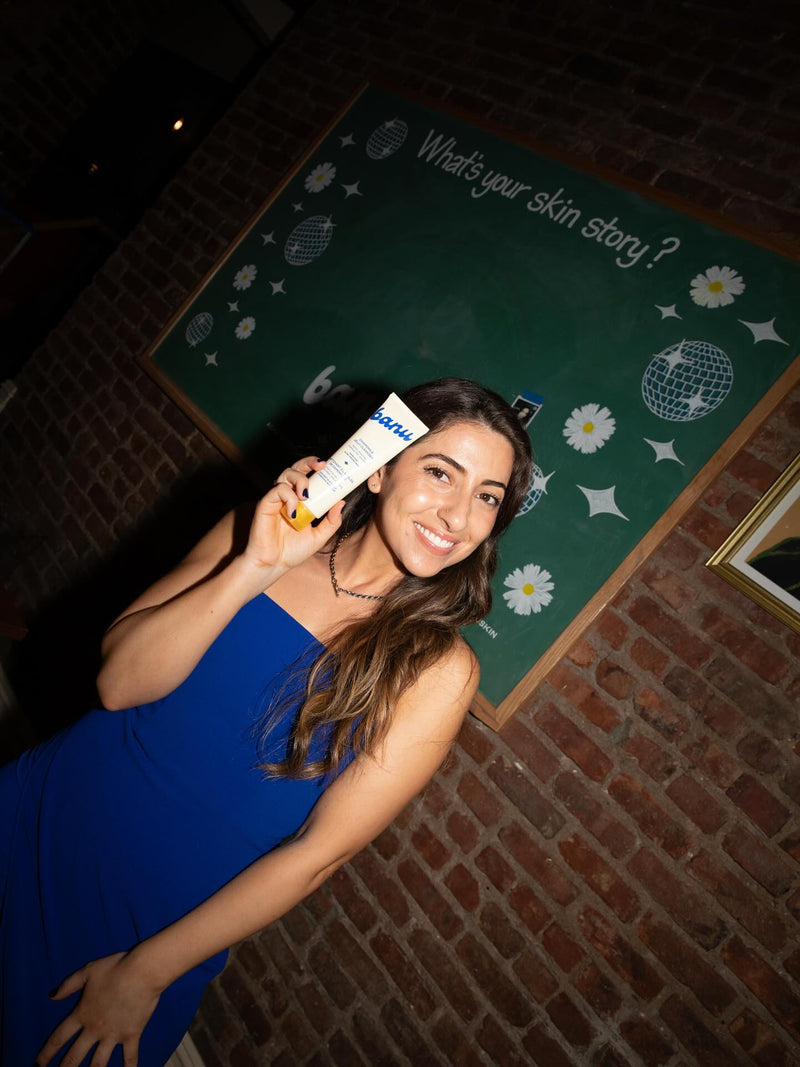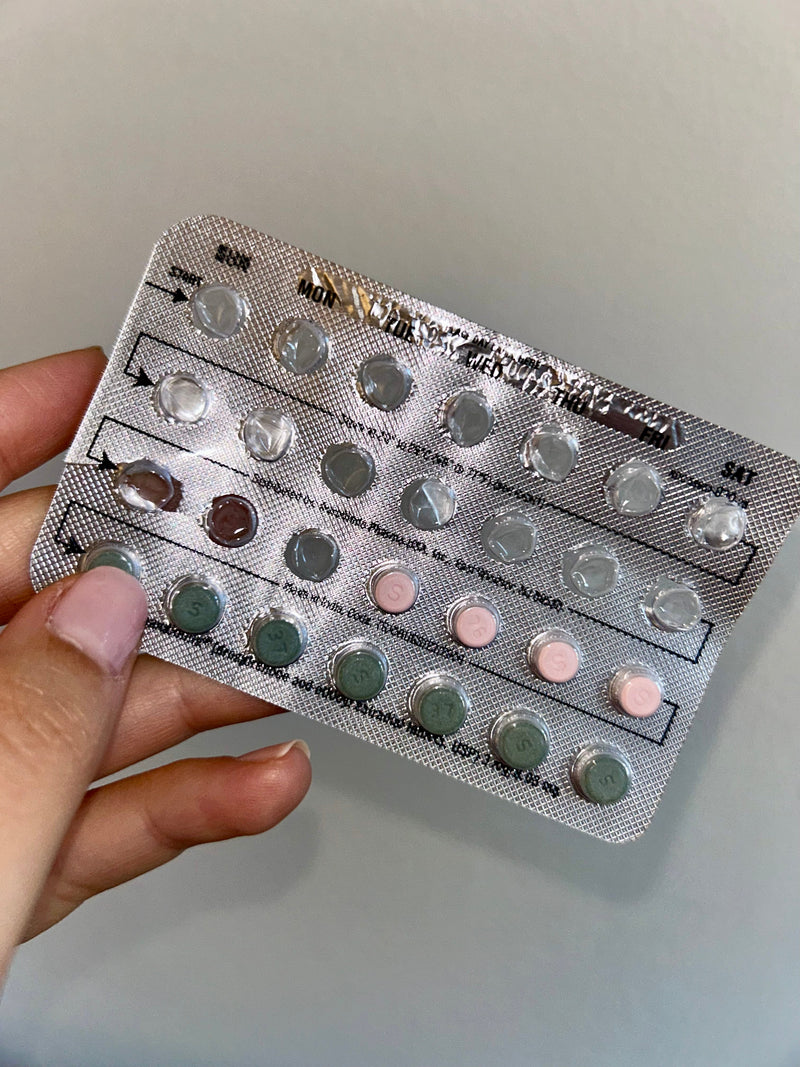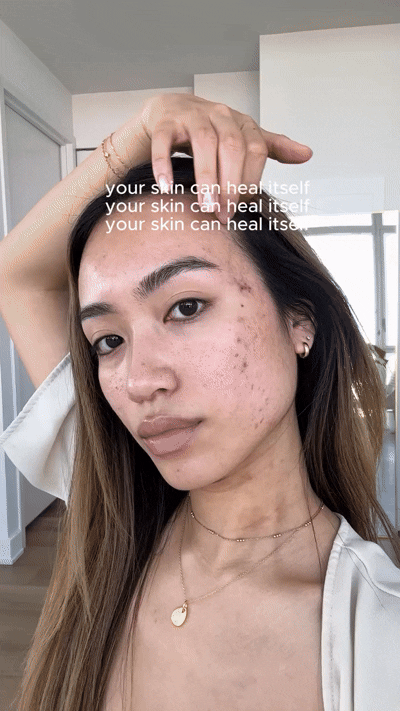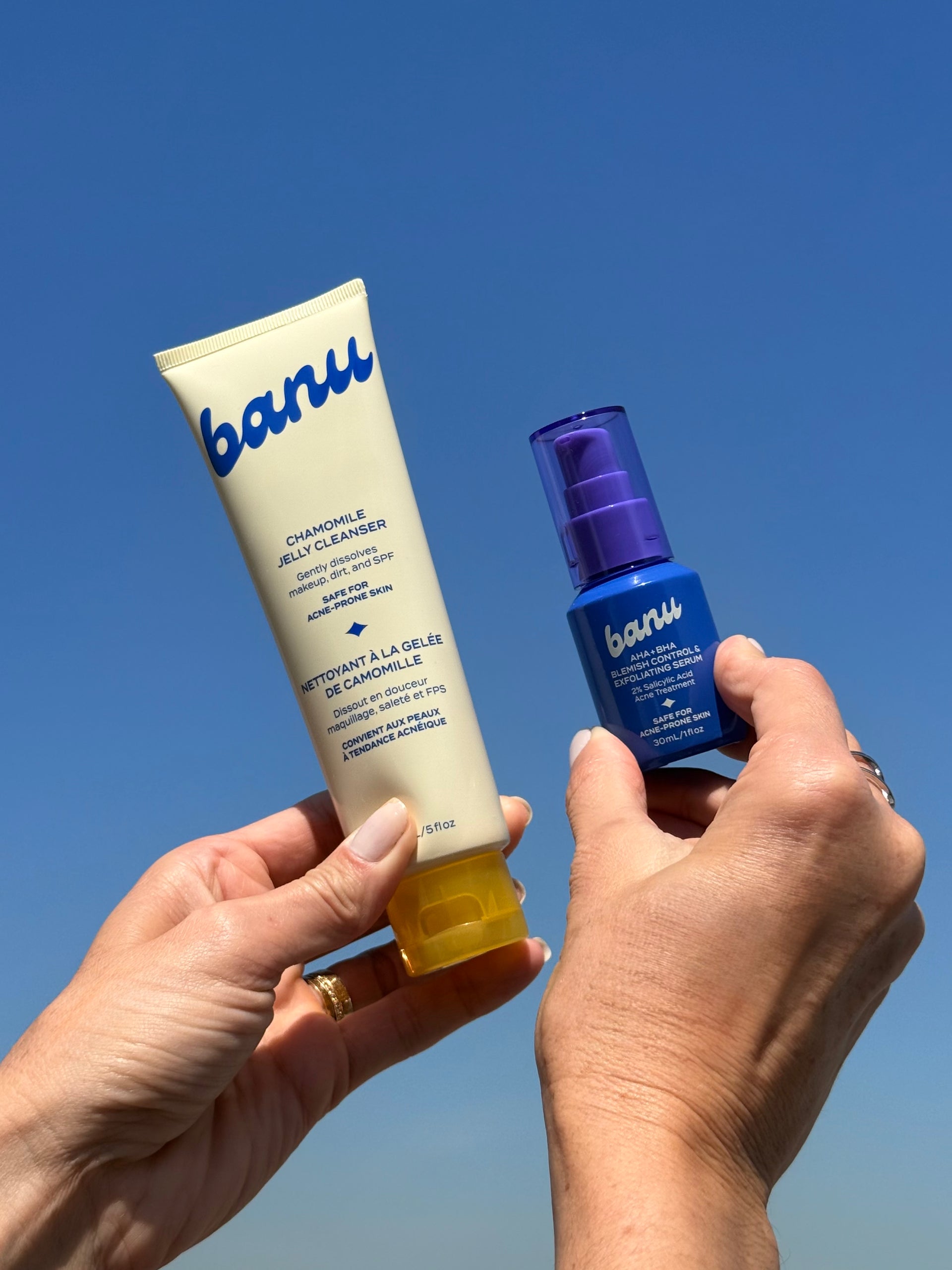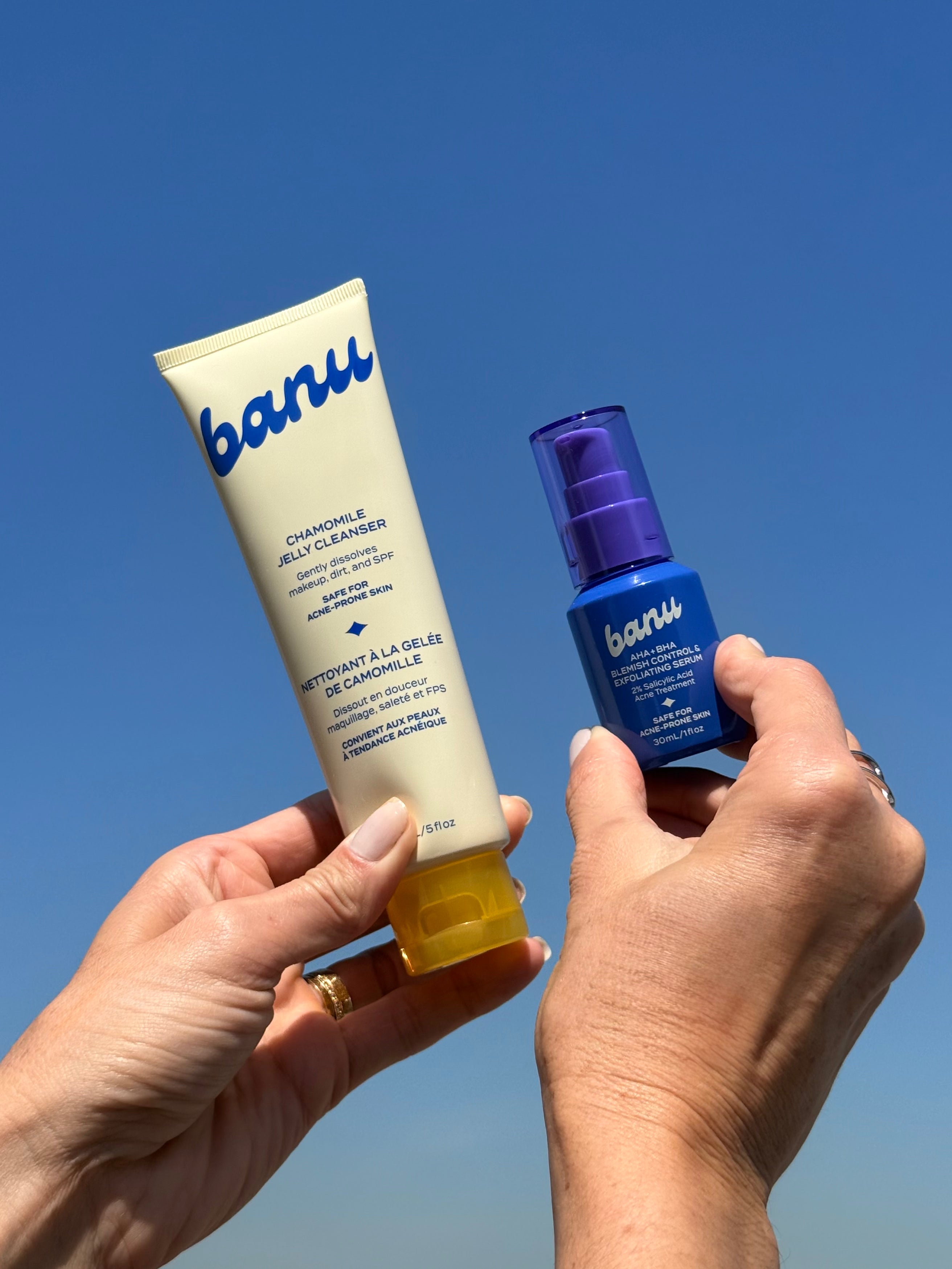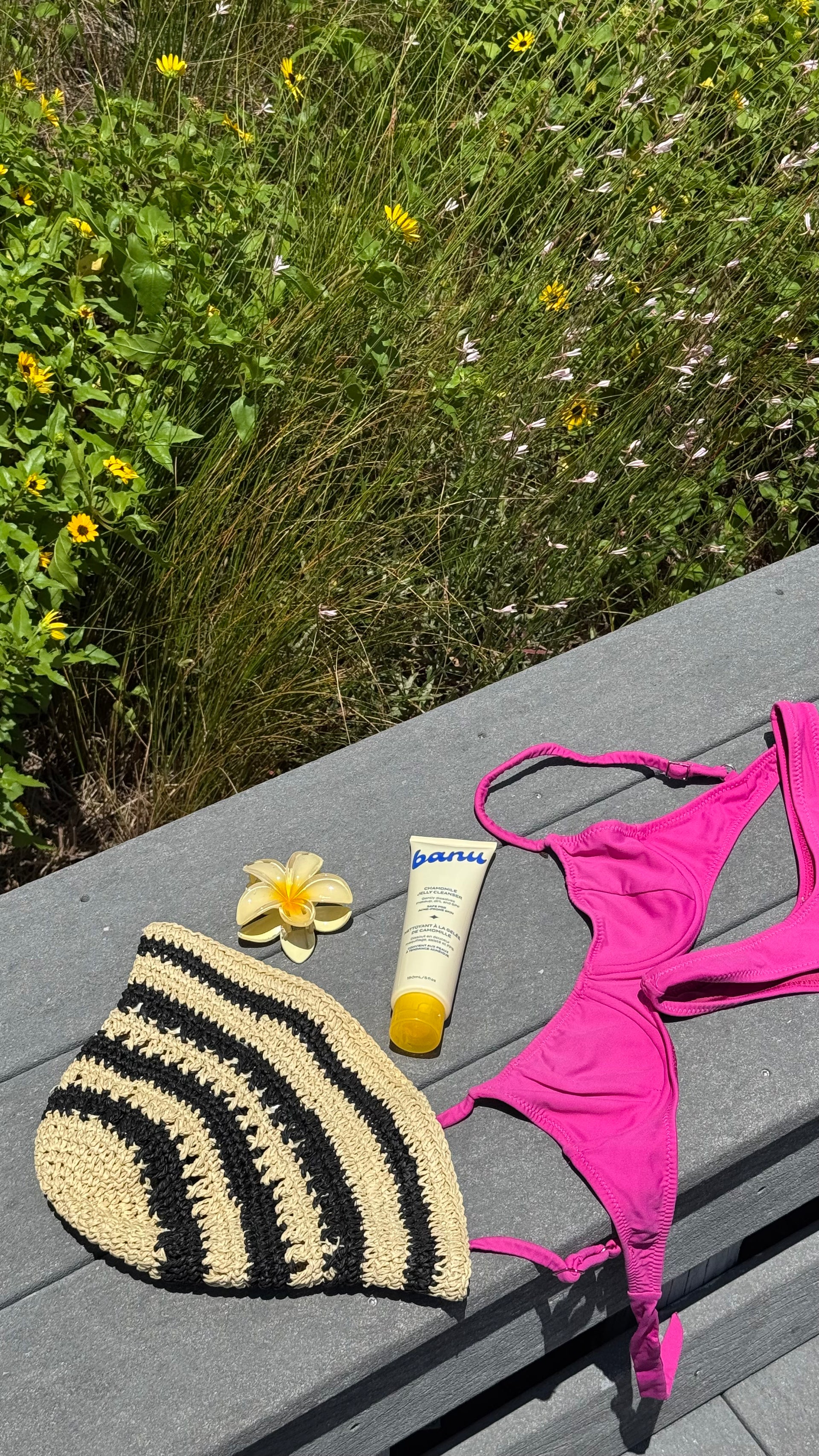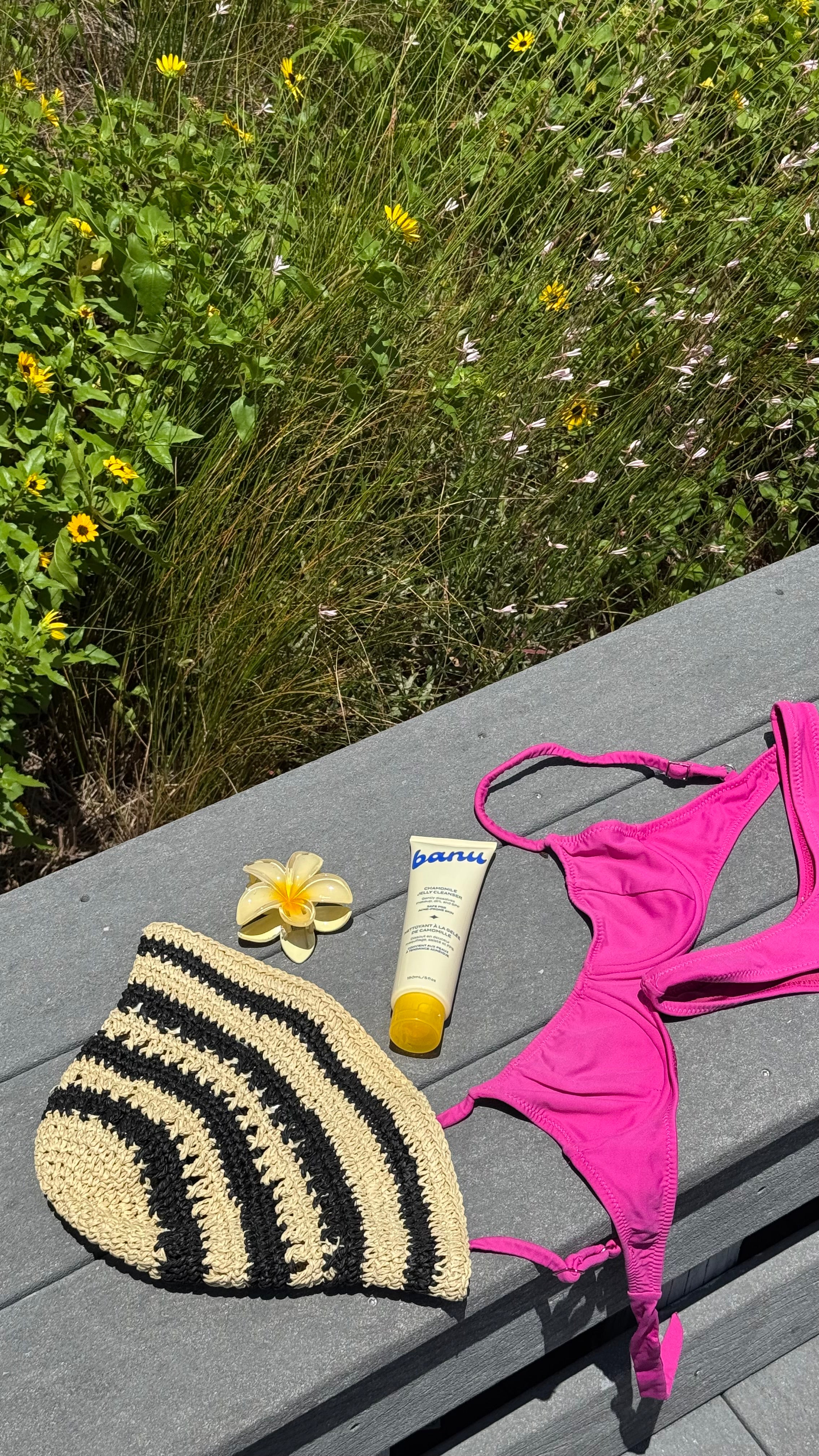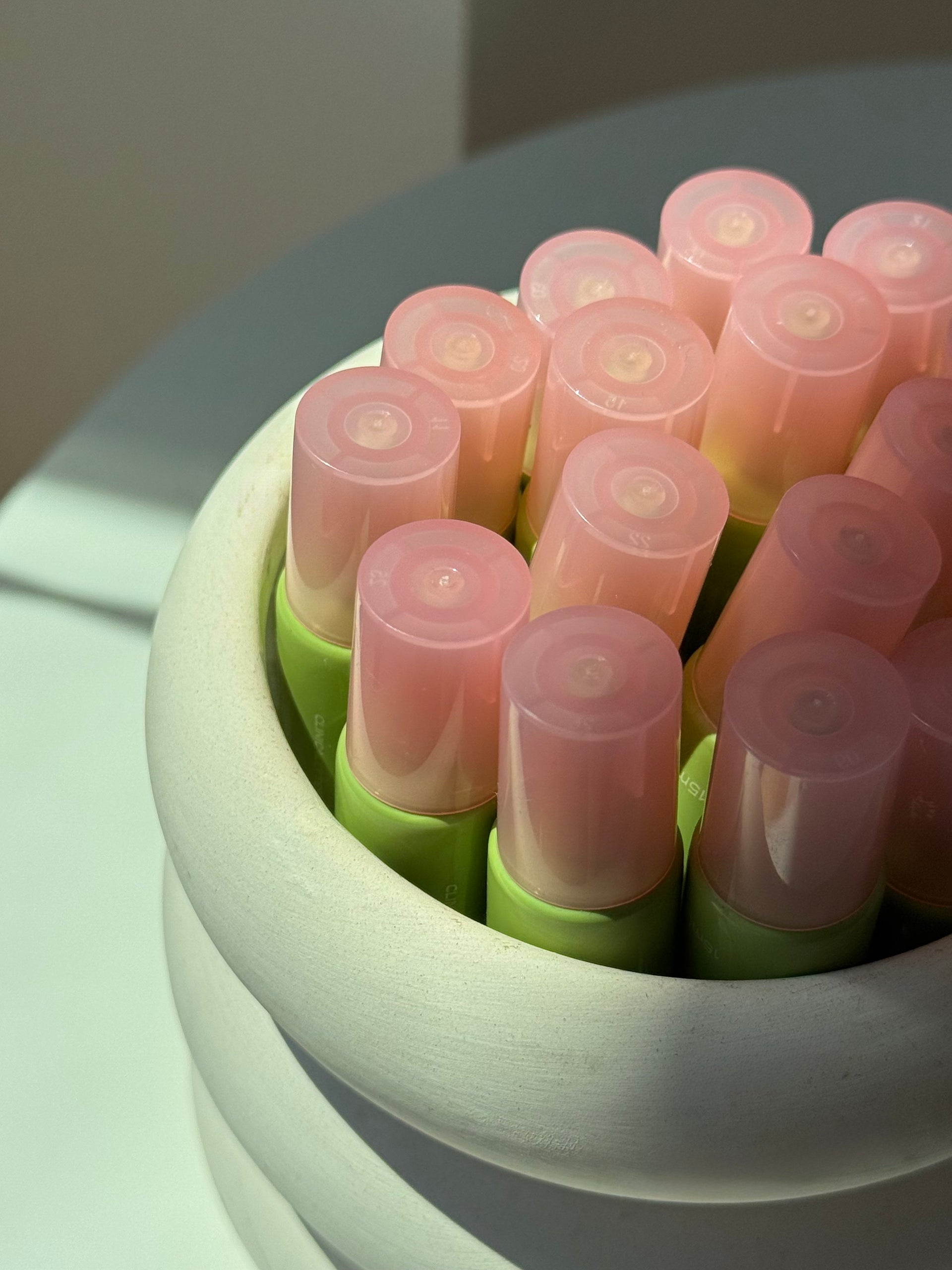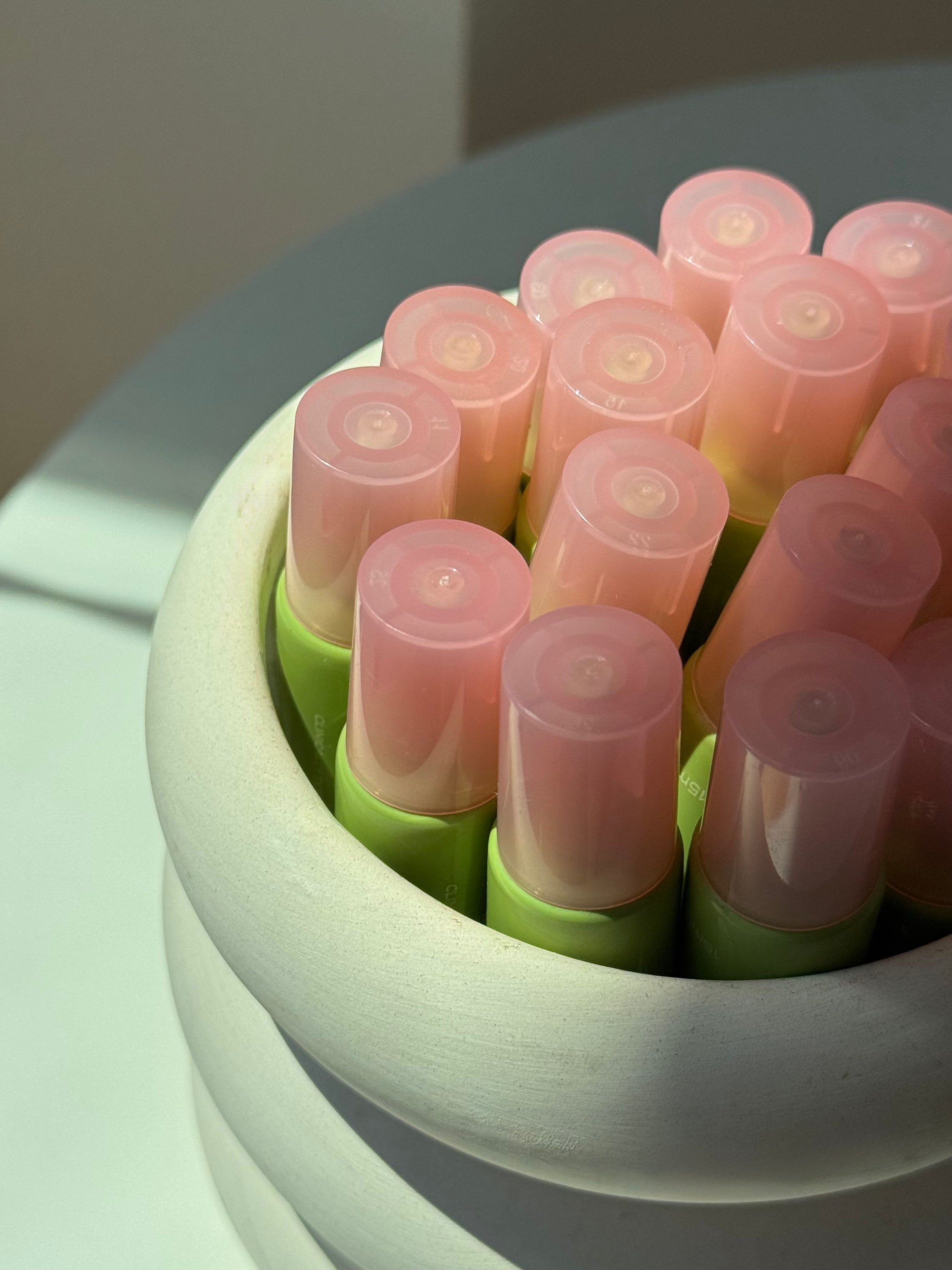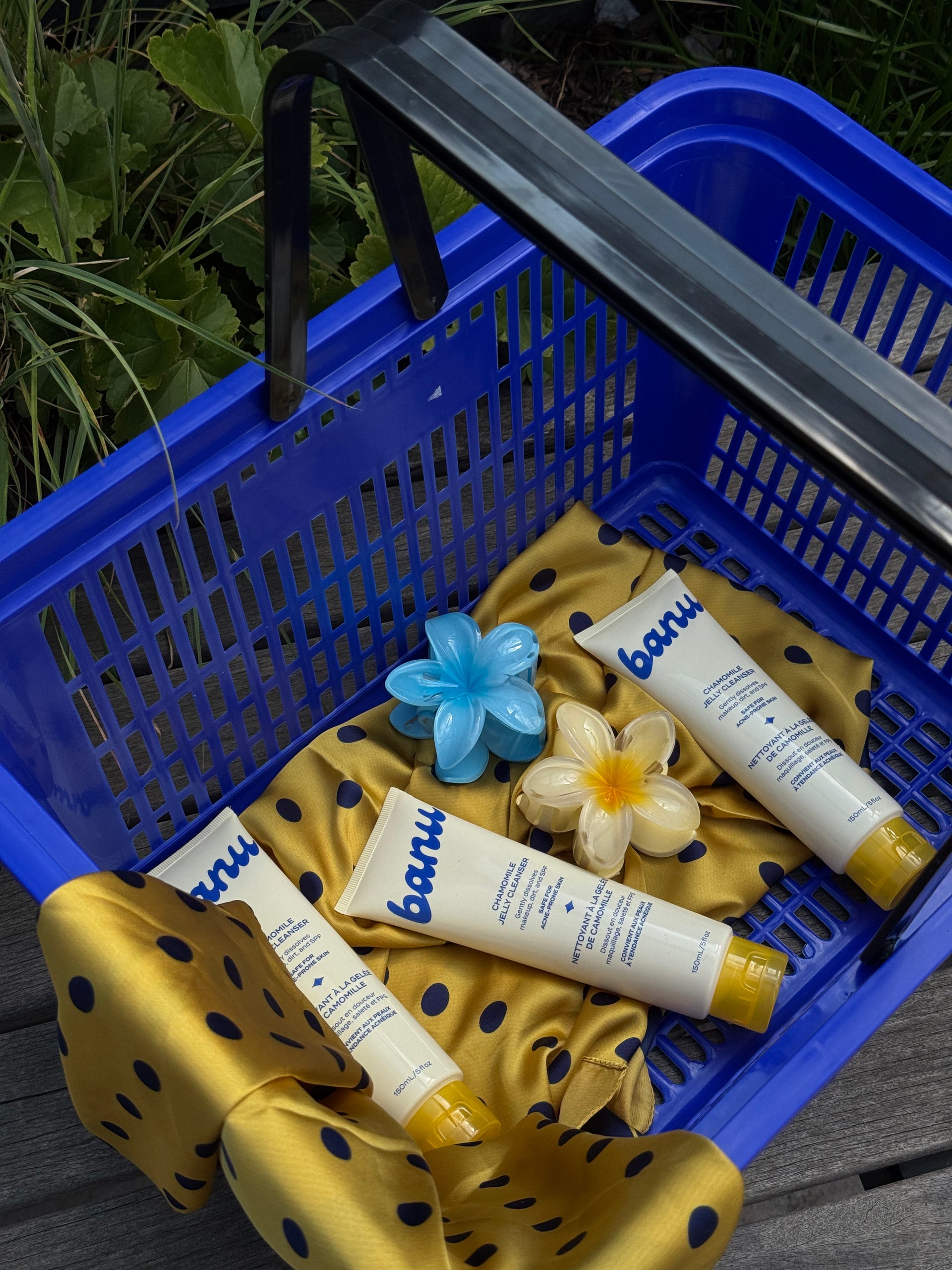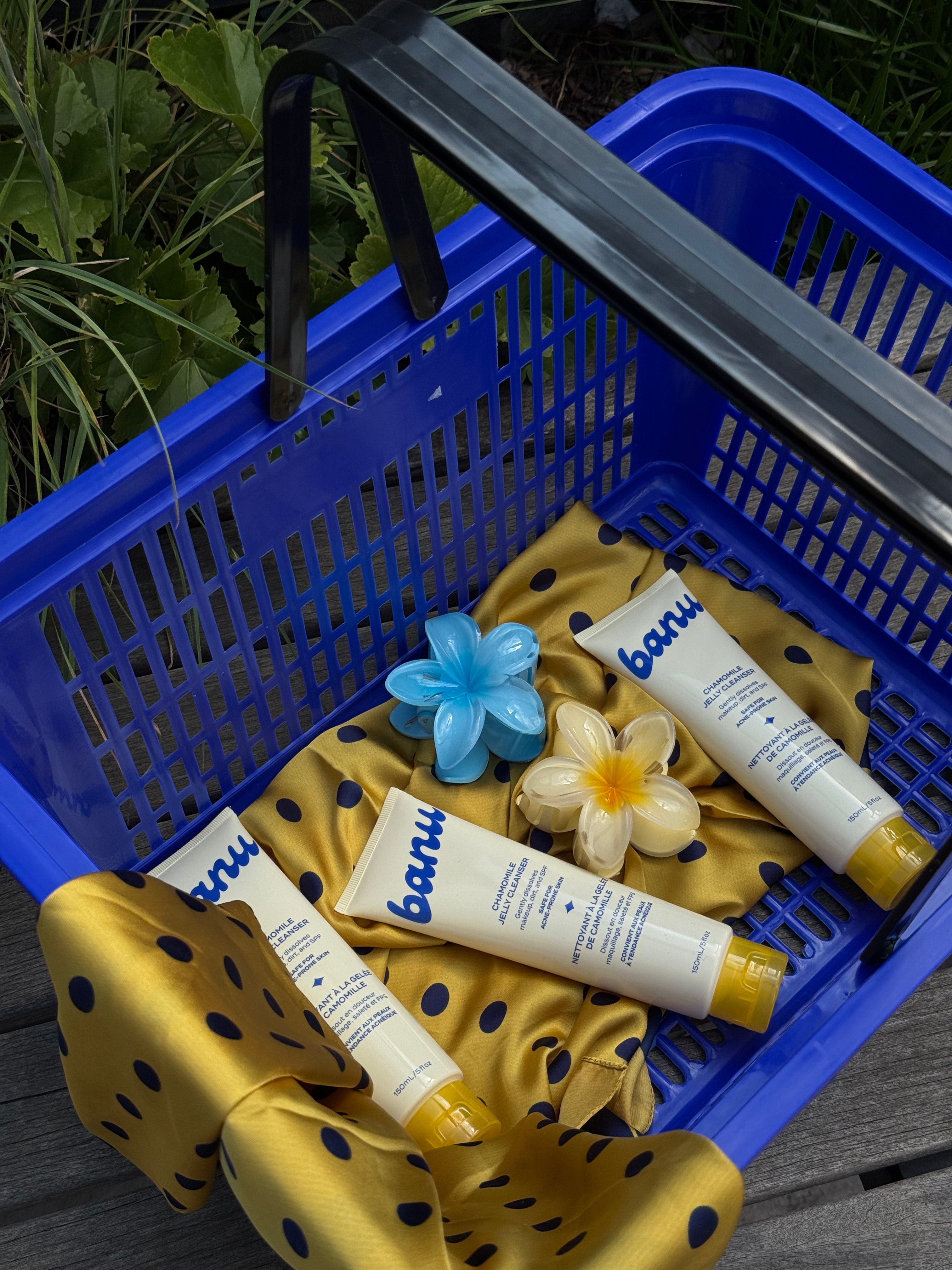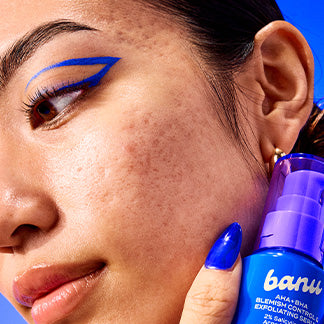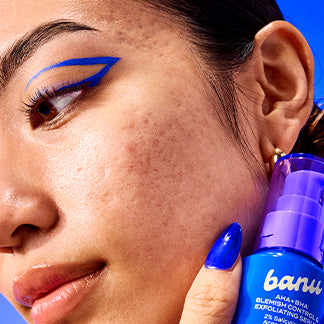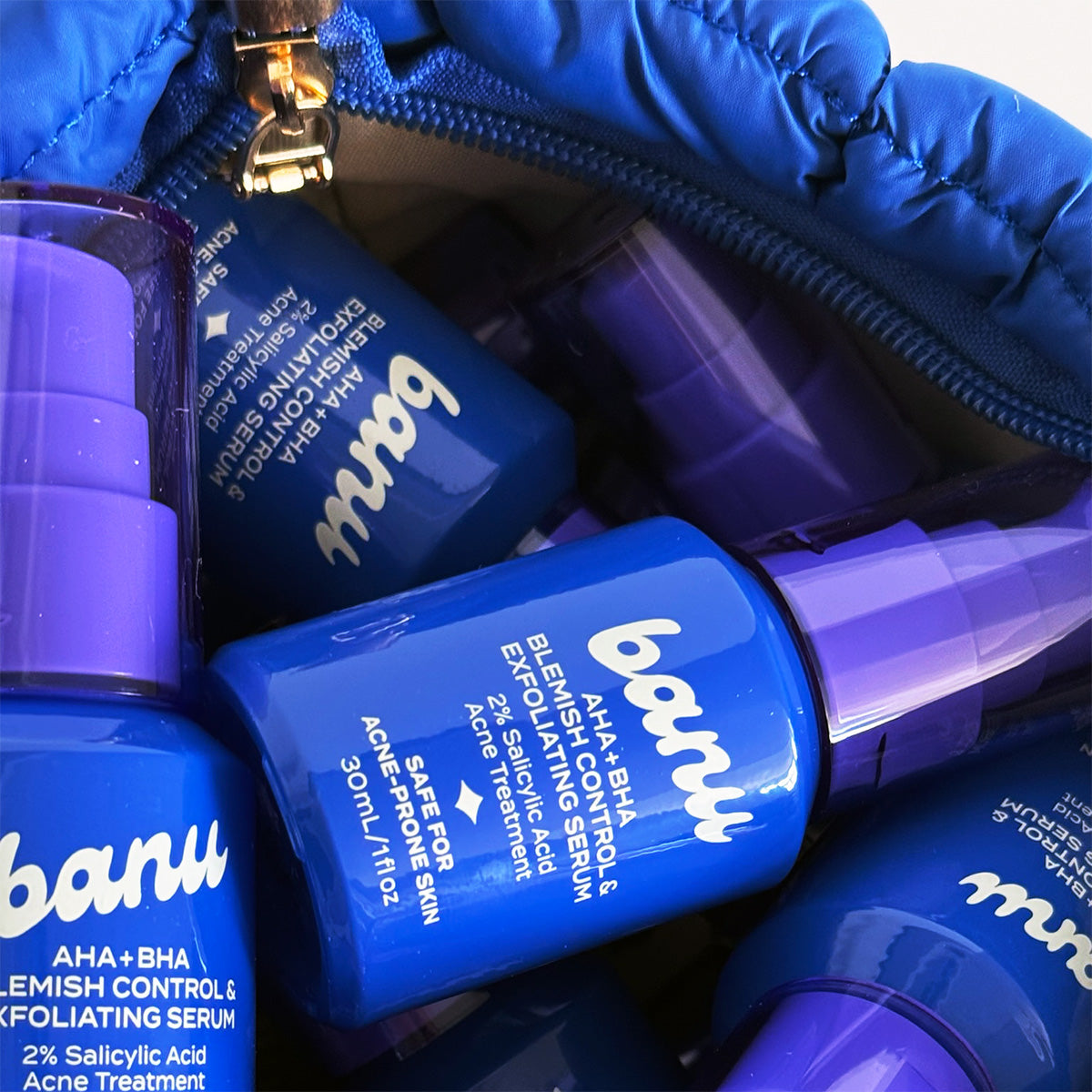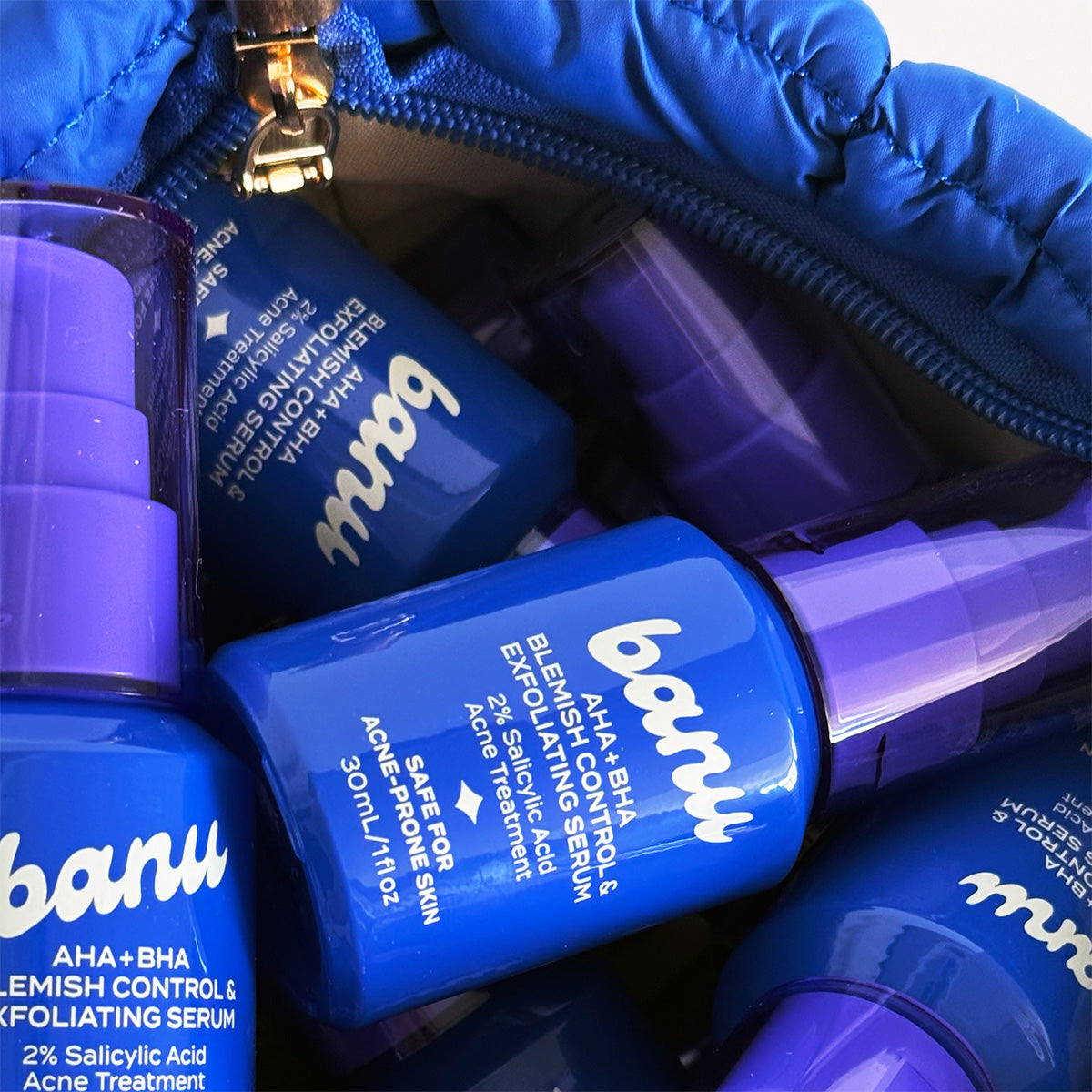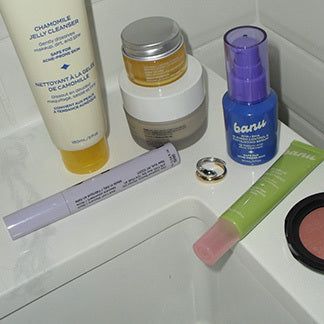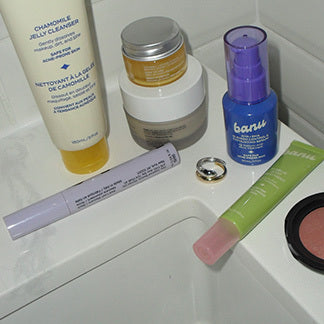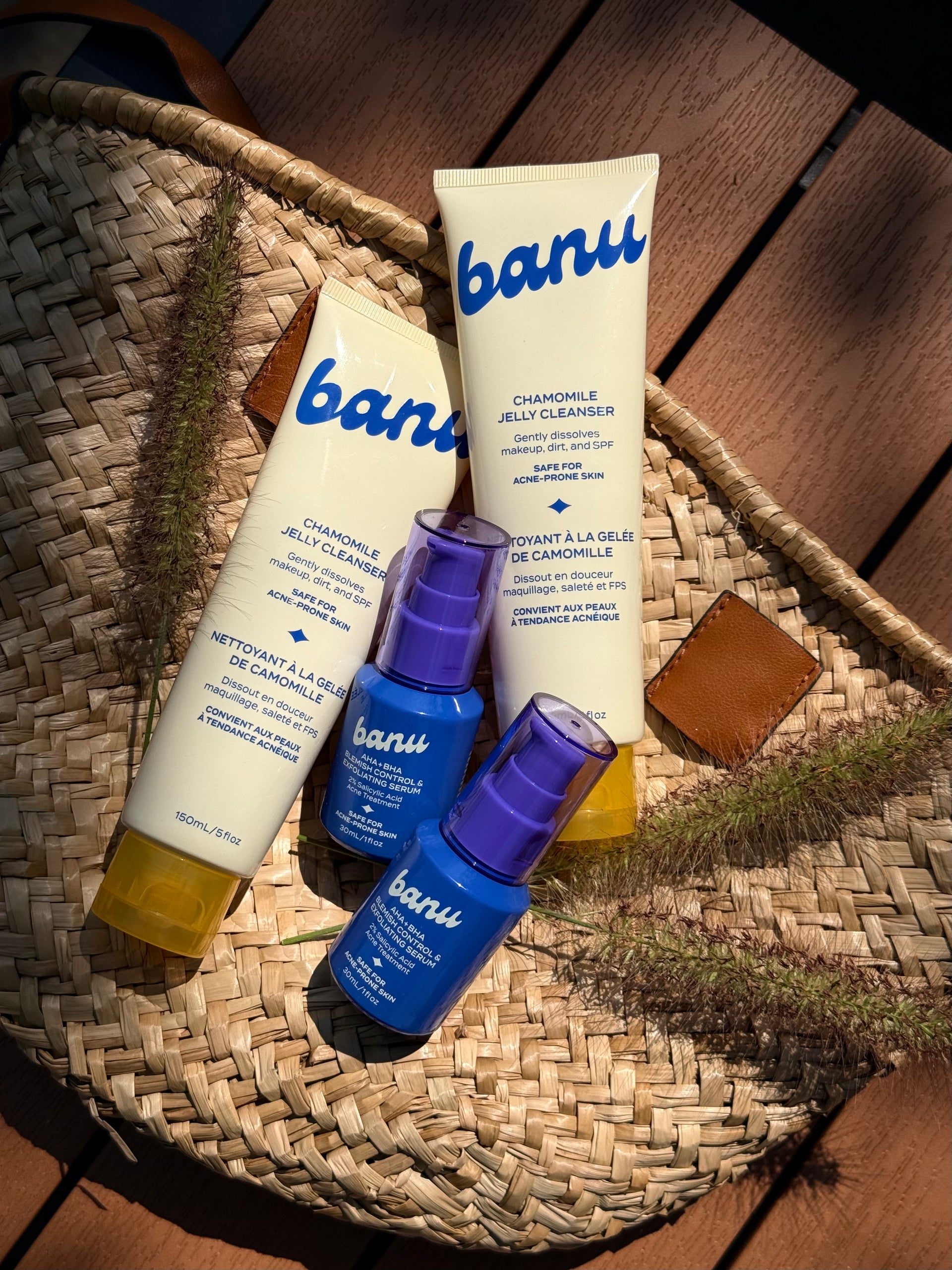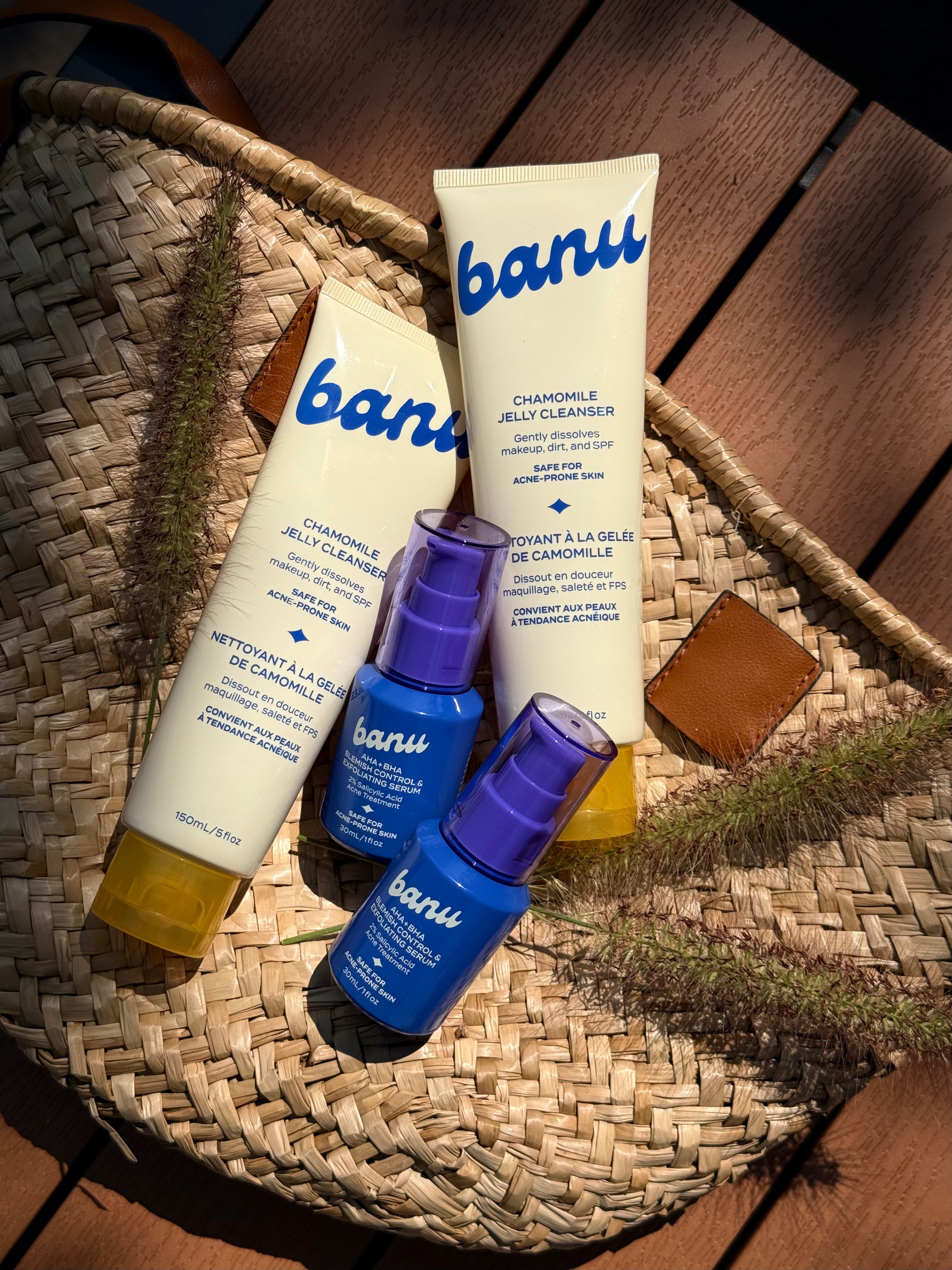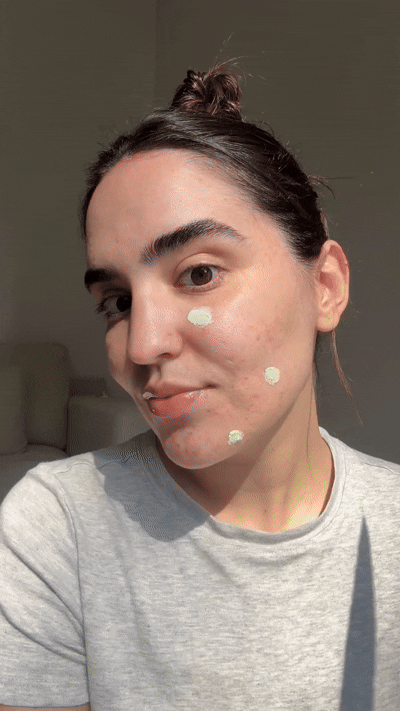
Acne 101
How to Treat a Pimple Fast (Without Going Overboard)
You’ve got something big coming up...and boom. A pimple. Truly never a good time for them to pop up, unless of course you're dying to get some use out of a new pack of pimple patches. Whether it’s a whitehead, something deeper, or full-on severe acne, breakouts happen. It’s a common skin condition — and yes, there are ways to manage it fast without going overboard. Let’s break it down: why pimples pop up, how to treat them quickly, and what to skip so you don’t make it worse.
-
5 Things I’d Do If I Had to Heal My Hormonal Acne All Over Again
Hormonal acne doesn’t play by the same rules as a random breakout. It’s tied to hormone levels, stress, and how your body moves through everyday life. I’ve been there — and if I had to start the healing journey from scratch, here’s exactly what I’d do.
ReadRead more -
PCOS, Acne, and Acceptance: Real Talk From the banu Community
When your skin keeps breaking out, your period feels unpredictable, or your body is sending signals that just don’t add up, PCOS could be part of the picture. Affecting about 1 in 10 people with ovaries, it’s super common in our community — yet still overlooked far too often. And if you’ve ever researched the best skincare for PCOS acne (you're not alone here), you already know how confusing and overwhelming the answers can sometimes be. The signs don’t always look the same for everyone: irregular or missing periods, higher testosterone levels, ovarian cysts (though not always), blood sugar or insulin resistance, and acne that just won’t seem to clear. The important thing to remember? You don’t need to check every box to be living with PCOS.
ReadRead more -
How to Support a Friend Who’s Struggling With Their Skin
We all know someone — maybe a friend, coworker, or classmate — navigating adult acne or severe acne. Knowing how to be a supportive friend in a situation like this matters, because a strong support system can make progress feel achievable and their mental health a little easier to handle. First, recognize that acne isn’t the same for everyone, it’s usually deeply personal and individual to their own bodily makeup, hormones, and other factors. Adult acne and severe acne can obviously affect confidence, mood, and how your friend navigates the world. So your role? Offer empathy, not judgment (of course). A few encouraging words or simple check-ins can go a long way toward empowering them on their journey.
ReadRead more
Latest Blog Posts
“Eventually, I realized the hard truth: there’s no real industry standard for what makes a product acne-safe”
Read the article-
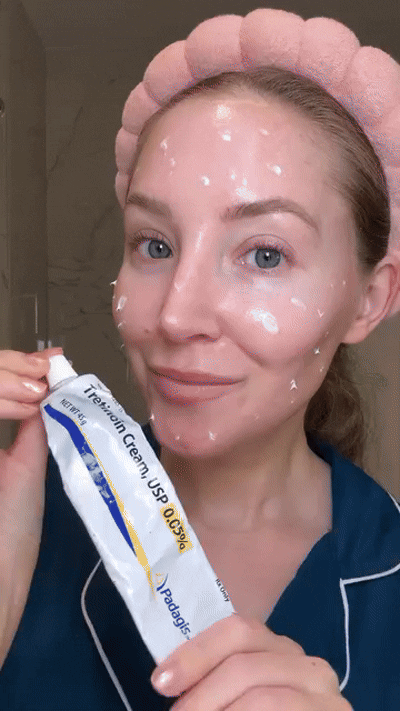 read more
read moreAcne 101
Tretinoin 101: What It Is + Why It Matters for Acne-Prone Skin
Tretinoin’s one of those skincare essentials you’ve probably heard a lot about — especially if you’ve spent time in skincare forums, derm offices, or TikTok rabbit holes. It’s a topical retinoid derived from vitamin A, and it’s a legit go-to from dermatologists for treating acne, fading dark spots, and boosting collagen production over time. But here’s the catch: not all tretinoin is created equal. And if you’re acne-prone, it’s key to talk to your healthcare provider about getting on an acne-safe version early.
-
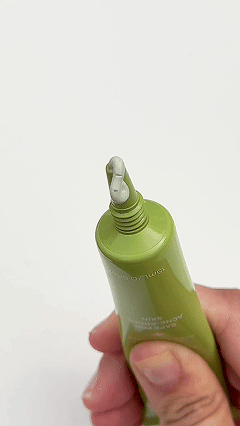 read more
read moreAcne 101
What Sulfur Actually Does for Your Skin (and Why It Belongs in Your Routine)
If you’ve dealt with breakouts longer than you'd like to admit, you’ve probably heard of salicylic acid, benzoyl peroxide, and maybe even retinoids. But sulfur? Underrated. It’s got that old-school pharmacy vibe, but don’t sleep on it — it’s gentle, effective, and kind of a sleeper hit for calming chaos.
-
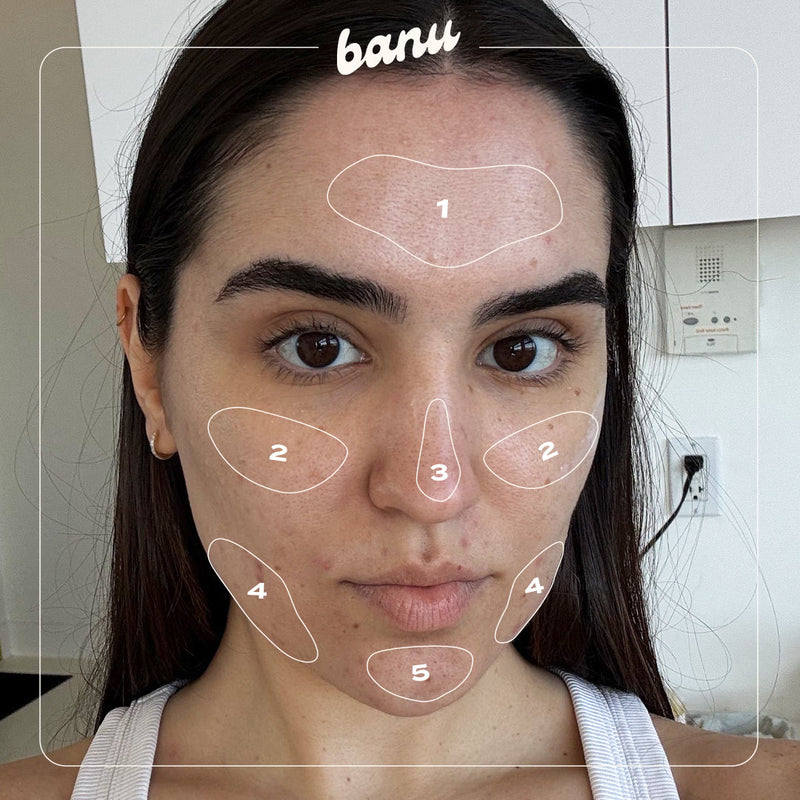 read more
read moreAcne 101
Face Mapping: What The Location of Your Acne is Telling You
If you've ever wondered why it's always your chin, or your forehead, or those same two cheek spots — you're not alone. Face mapping can offer a bit of clarity. Face mapping is an ancient skin-reading practice rooted in Traditional Chinese Medicine. It connects the location of your acne to what's going on internally. Is it exact science? No. But it can be a useful check-in tool when you're navigating your skin journey. Let’s get into what face mapping can (and can’t) tell you—starting with the usual suspects: forehead acne, cheek acne, nose acne, and jawline acne.
-
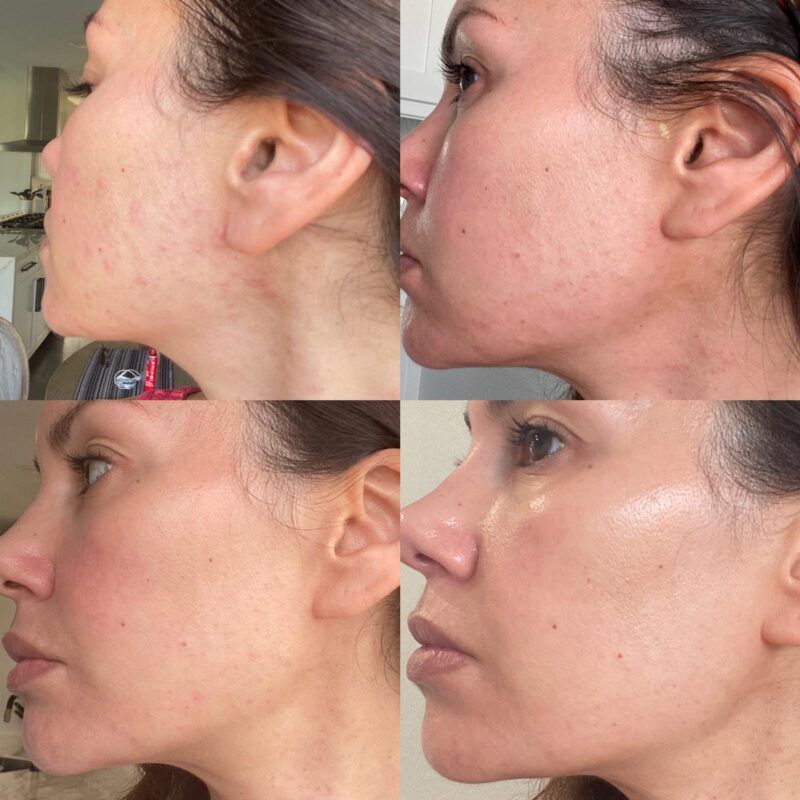 read more
read moreAcne 101
Breaking Out? It Might Be Fungal Acne — Here’s What to Know
Let’s talk about something a little less mainstream and way more common than you’d think: fungal acne. If you’ve been dealing with clusters of tiny, itchy bumps (especially on your forehead, chest, or back), and nothing seems to help — there’s a solid chance you’re not actually breaking out. You could be dealing with fungal folliculitis, a skin condition caused by — you guessed it— yeast overgrowth, not bacteria. And that matters. Because if you treat fungal acne like regular acne, it’ll stick around. But once you know what you’re dealing with? That’s a breakthrough moment.
-
 Read
ReadAcne 101
Different Types of Acne — and How to Actually Treat Them
Breakouts hit different. Sometimes it's tiny bumps across your forehead. Other times, it’s one deep, angry zit that won’t go away. Knowing your type of acne is key to finding the right acne treatment — because not all breakouts respond the same. Here’s your no-BS guide to the different types of acne, how they show up, and what your skin ~actually~ needs.
-
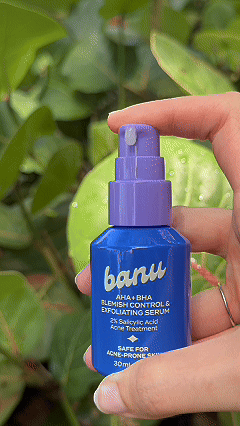 read more
read moreAcne 101
What Is Salicylic Acid and Why It Belongs in Your Skincare Routine
Let’s talk about one of the most proven, go-to ingredients in the acne world: salicylic acid. Technically, it’s a beta-hydroxy acid (BHA) — aka an oil-soluble chemical exfoliant that goes deep into pores to clear out dead skin cells and excess oil. Translation? It’s a total MVP for unclogging skin and calming breakouts before they blow up.








